Privacy
Defending an Illusion
Martin R. Dowding

THE SCARECROW PRESS, INC.
Lanham Toronto Plymouth, UK
2011
Published by Scarecrow Press, Inc.
A wholly owned subsidiary of
The Rowman & Littlefield Publishing Group, Inc.
4501 Forbes Boulevard, Suite 200, Lanham, Maryland 20706
http://www.scarecrowpress.com
Estover Road, Plymouth PL6 7PY, United Kingdom
Copyright 2011 by Martin R. Dowding
All rights reserved . No part of this book may be reproduced in any form
or by any electronic or mechanical means, including information storage
and retrieval systems, without written permission from the publisher,
except by a reviewer who may quote passages in a review.
British Library Cataloguing in Publication Information Available
Library of Congress Cataloging-in-Publication Data
Dowding, Martin Ridley.
Privacy : defending an illusion / Martin R. Dowding.
p. cm.
Includes bibliographical references and index.
ISBN 978-0-8108-8102-0 (pbk. : alk. paper) ISBN 978-0-8108-8103-7
(ebook)
1. Privacy, Right of. I. Title.
JC596.D69 2011
323.44 ' 8dc22 2011006016
 The paper used in this publication meets the minimum requirements
The paper used in this publication meets the minimum requirements
of American National Standard for Information SciencesPermanence of
Paper for Printed Library Materials, ANSI/NISO Z39.48-1992.
Printed in the United States of America
Introduction
It has been more than ten years since Sun Microsystems CEO Scott McNealy said, You have zero privacy anyway... get over it. More recently, Facebook founder Mark Zuckerberg wondered whether there is a new, transformed social norm of privacy. McNealy was referring to what he thought our society has done by embracing information and communication technology (ICT), with the effect that we are observed or intruded upon at every electronic corner. Zuckerberg, on the other hand, was asking if people today think privacy is not as necessary in the way it was once thought to be necessary. We might also wonder how McNealy and Zuckerberg would respond to WikiLeaks, the emerging political crisis that will, undoubtedly, contribute to a new privacy and surveillance norm.
Can those of us who think that privacy is still important maintain our privacy under the contemporary social, legal, and technical conditions just cited? Can we agree on how to maintain privacy? In our current information technology economy, is privacy an illusion? What McNealy and Zuckerberg arent acknowledging is that many people still believe that there is an ethical, moral, political, and common-sense case for privacy. Information and communication technology can expose users to serious harm when their personal information is disclosed. Personal information has value, whether it is disclosed carelessly by users themselves, compromised by others who feel no need to protect someone elses information, or stolen or sold for economic advantage.
Because new technologies are exposing private information in new ways on an almost daily basis, I make no effort in this book to address or resolve every possible privacy violation; however, I do hope to provide some of the information you need to do the following:
be aware of when and how your privacy is at risk
know the possible implications of those situations
learn about some of the legislation and policy that affects the use of information
evaluate the best means to protect your information, as well as the information of others
Consider the following examples of what happens when personal information falls into the wrong hands in unexpected or unanticipated ways. Losing your wallet may sound simple enough. We hope for the kindness of strangers to resolve such a loss with a phone call. But what if the strangers are not so kind and they decide to make your personal information their own, at least for the duration of its value to them? They could go on a rapid spending spree with a credit card or call around the world if you happen to have a phone card. Or they could do something much worse, for example, using your social security number (or in Canada, your social insurance number) to become you by committing identity theft. Using your identity they could take out loans or mortgages for which you would be responsible or commit crimes for which you would be blamed. What if your debit card passwords or credit card numbers are skimmed or otherwise captured by some device in a store or a gas station? It has happened to me. It has happened to my family and friends.
What if your bodily privacy is compromised when you travel by air or across borders? How do you respond when a complete stranger has the right to feel your entire body? What is your response to
x-ray scanner technology that exposes more about your body than you want exposed?
What can you do to secure your information on your computer when others have access to it by hacking or spyware? Why, you might wonder, is there porn all over your screen? How can you protect yourself if you have saved romantic e-mails, personal health information, or innocent coursework searches about religion or al-Qaeda that some government agency considers suspicious? What do you do when your parents discover that you have left your Facebook site open and they find out who your friends really are and what you really like to do with them? You may have to talk about it. What happens to your territorial privacy when your landlord goes into your apartment and rifles through your personal belongings?
Privacy: Defending an Illusion , directed toward senior undergraduates, masters students, and the interested public, has evolved from more than ten years of studying and teaching the history, necessity, and virtues of privacy in a range of societies, businesses, and personal undertakings. Although the book does not entirely agree with what Scott McNealy and Mark Zuckerberg have said about privacy, it does show how changing technology may mean that we will have to get over it. Those who still like their privacy as an old fashioned norm will find that they are never alone.
This book is composed of three main parts. The first section is a history of interpretations of privacy in a wide variety of sociocultural circumstances. The second section represents the way ICT has changed our conceptions about privacy and redirected our focus from keeping information private to sharing it with many more people than we would have even a few years ago. The second section also examines a variety of possible options for the future of privacy. The third part of the book, a series of appendixes, encourages debate about privacy.
The books nine chapters provide a background for defining, understanding, and defending privacy in a wide variety of contexts. Chapter 1 investigates privacy historically, starting with the first known writing about it in classical Greek and Roman texts. These texts created a foundation for later philosophical and political models, including medieval, early modern, enlightenment, modern, and contemporary beliefs. Chapter 2 includes two contrasting narratives about privacy: a pre-ICT view of privacy in the Victorian era and a contemporary day-in-the-life of an everyman in todays wired society.
Chapter 3 introduces the largest sociotechnical challenge to privacy and reviews how Scott McNealys proclamation about ICT continues to be challenged by social scientists, computer specialists, governments, and legal and cultural analysts committed to privacy. The following chapters address the ways in which different sectors of society are responding to longstanding views about privacy as those views have been transformed by new information and communication technologies. Each section includes approaches taken by the United States and Canada to privacy legislation and policies pertinent to each sector. The internationally recognized Canadian Standards Associations Model Code for the Protection of Personal Information and the Organisation for Economic Co-operation and Developments equivalent Guidelines on the Protection of Privacy and Transborder Flows of Personal Data , used to design and interpret privacy policies, are included as appendixes to assist readers in designing their own policies and understanding policies they encounter.

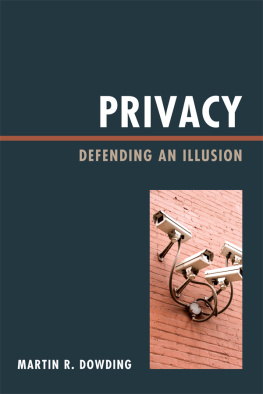
![Dowding - The Year-Round Vegetable Gardener’s Bible [7 Books in 1]](/uploads/posts/book/453239/thumbs/dowding-the-year-round-vegetable-gardener-s.jpg)



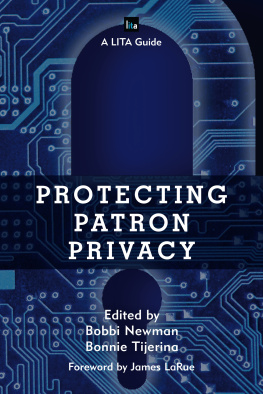
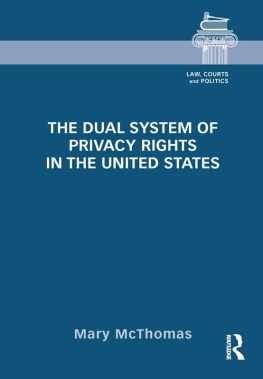
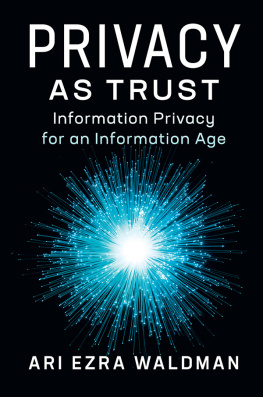
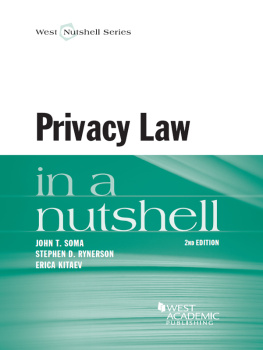


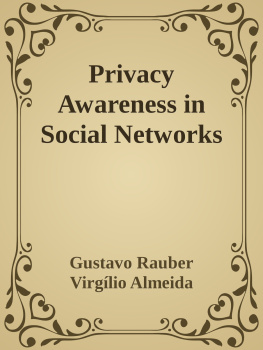
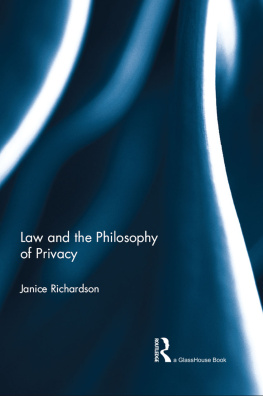
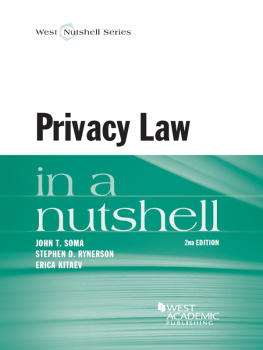

 The paper used in this publication meets the minimum requirements
The paper used in this publication meets the minimum requirements